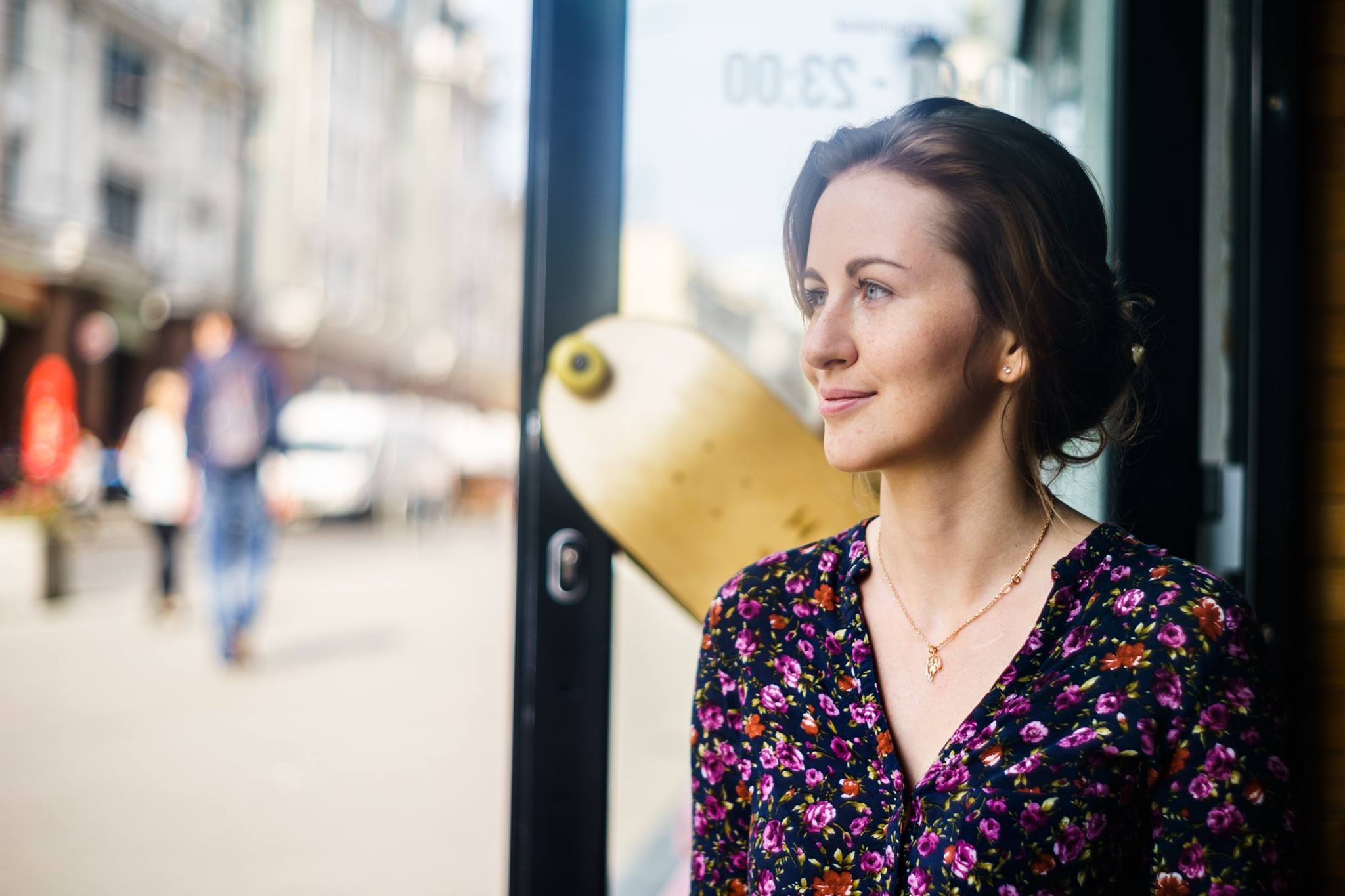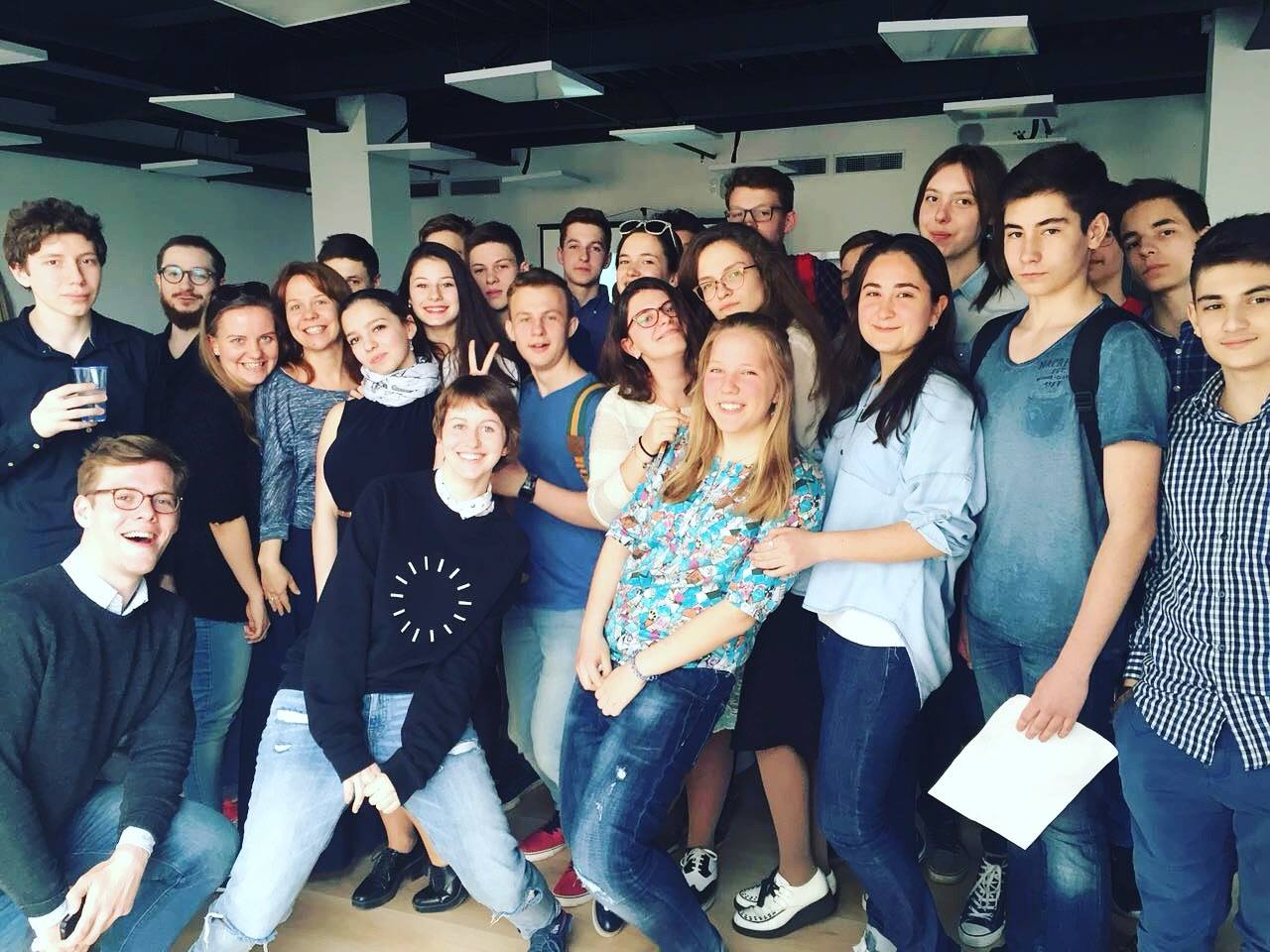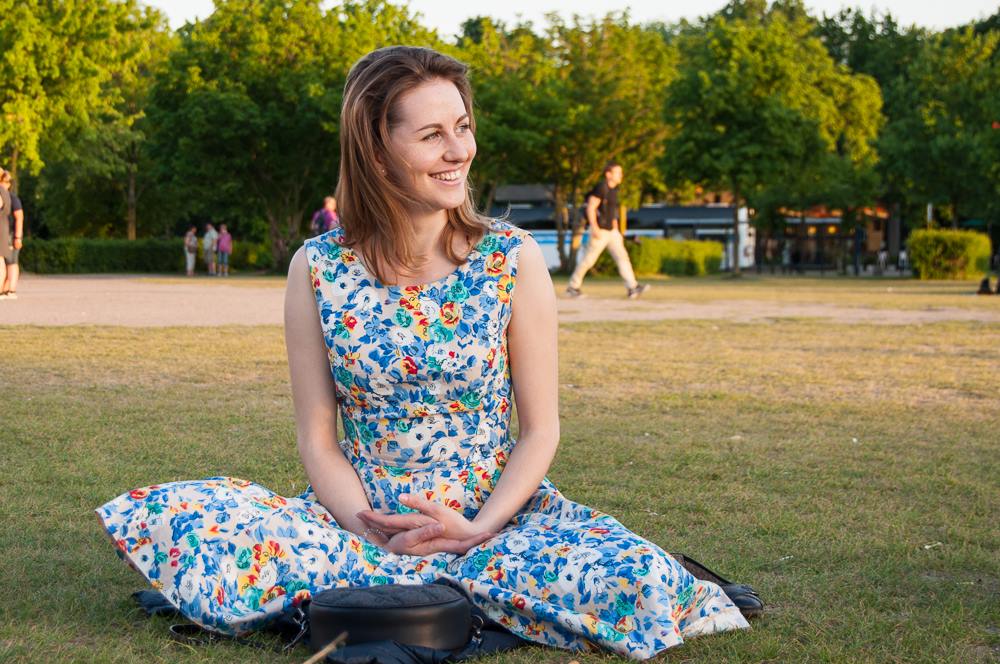‘A person that works in education must study all the time’

Diana Kolesnikova graduated from ICEF BSc programme in 2011 and went to apply her mathematical skills in unusual fields – education and psychology. Her project called “obraz zhizny” (Russian for “way of life”) received the HSE Alumni Award in 2020 in the “philanthropist” category. In the interview Diana tells us how the right environment helps in studies, why it is important to try out different occupations, what the reasons to study graduates’ experience are, and how it is important not to be afraid to show your opinion to make the university better.
What attracted you to the education sphere so deeply?
First of all, I enjoy turning difficult matters into simple ones. Secondly, I was always interested in the social part of education. I think that if the maximum number of people have access to useful learning resources, it will benefit the society greatly. It was always some sort of a mission to me. Thirdly, I am interested in innovations and although education is in many aspects a traditional sphere, it is still very sensitive to what is going on in the world. The appearance of online courses prompted education to become more flexible and to adapt to the new demands and circumstances.

Even at school I was unhappy with the gap between education and real life. That’s what I wanted to change.
Why did you choose ICEF?
Many senior school pupils are not aware of their future career and that often does not change with age. To me, however, the choice of the university was logical – by that time I was studying in a mathematical-linguistics class, and I liked both mathematics and languages. ICEF was the best choice, as I could develop in both directions there. Besides, we had strong economic classes at school. We had great economic games, simulations, I participated in summer schools in economics and entrepreneurship. Afterwards, I became interested in experimental and behavioural economics. Studies at ICEF taught me to describe the world and its separate phenomena with models. I constantly use my knowledge of statistics in business-projects and research.
At what stage did theoretical economics change to behavioural economics?
When I was at school, I read a piece on the ICEF website about behavioural economics and became interested in the college’s research life in general. In my second year I wanted to learn more about behavioural economics, so I started looking for a teacher that would be occupied with game theory and would help me advance. This is how I met Alexis Belyanin and after that we worked together on the people’s behaviour that can be described in mathematical language. For many people this branch of science is not obvious, but to me it is true science.
Did you wonder, why economics taught at universities is usually so detached from the social element?
To me economics has always been about the people exactly, I never had a different thought. For example, at ICEF there was a course on game theory with Alexis Belyanin, where we explored cognitive distortions using advanced economics, analyzed the phenomenon of deception using companies’ cases, investigated how collusions work and why prices rise. It’s just that I was always interested in microeconomics. As for those who choose macro, the social aspect is not that obvious.

What is your criteria of a good education?
What is highly important for a student is the environment and community, in which he or she studies and changes; this is my main benchmark. A few years you are surrounded by people, with whom you walk the same path, both professors, colleagues, and fellow students. ICEF students are all interested in studying, they all have very different goals, and they place high demands on themselves. Such a competitive environment is inspirational.
Flexibility and students’ support are common at ICEF and HSE. Our votes and ideas were really considered. We trusted our university, wanted to spend all our free time there, discussing ideas that really interested us and knowing that it was not idle talk. The conditions for personal development can appear only when the university becomes your way of life.
What were you plans after graduating ICEF?
I considered continuing my education. I had seen many examples of ICEF graduates that had gone abroad for a MSc of PhD. I saw myself in a foreign university too, partly because I could not find a suitable programme in Russia. I wanted to engage in cognitive and social sciences, and these directions are not very well developed here. As a result, I chose the master’s programme in Cognitive Science in Education at Columbia University (USA).
This specialization became a continuation of my work at HSE laboratory on experiments in behavioural economics and organization of different extra activities, in which I was engaged from my 2nd year. Cognitive psychology is just one more glance at human behavior and its reasons. I was interested not just in explaining behaviour, but also investigating thinking as a part of decision making.
How did you evaluate your BSc background, while entering the MSc abroad and studying there?
By that time the ICEF programme was one of few programmes in Russia where you speak, write and read in English. I knew English well, but I saw guys who entered ICEF with low language level and who managed to quickly catch up due to the immersion in a western university’s environment.
Exams at ICEF were held in a written form, while at most other Russian universities assessment is held orally. Above all, ICEF prepares you for the western education system mentally. When you see graduates’ success in famous universities, you stop thinking that Oxford or Harvard are unattainable, and you realize that you actually can study at the best universities. That sets you free.

When did you start implementing the “way of life” project and what lies in its roots?
In essence, that was a continuation of what I did at ICEF Outreach. At first, I was a part of the project, we visited orphanages and were looking for formats to do something really useful for kids. Then I became a leader. When I was in the USA, my friend and I had an idea of online lessons for pupils from distant Russian orphanages, we took part in a competition and presented our project to a potential donor. All of a sudden, we won the support in the competition and a donor provided the first funds that were needed for a pilot version. The project idea gradually transformed, we changed it to make it stable and sustainable. This is how “way of life” appeared.
What is the mission of the project now?
I wanted to make a camp for high school students, but within the city, so that they could try adult life, living without parents, cooking food on their own and meeting people. The “way of life” is now open not just to high school students but to adults too, and our motto goes: we help choose not a profession but a way of life. And this choice happens not just once, but constantly.
In the modern world the concept of profession is out of date, you don’t choose it once and for all
The two principles (the ‘way of life’ and ‘constant choice’) formed the basis for all products that we did within the project. One of the latest initiatives was called “Own story”. We drew up a database of speakers that are ready to share their experience, talk about their life and work with high school students from different parts of Russia. I had a dream of trying different roles and seeing behind the curtain of various professions and “the way of life” made my dream come true.
Why did you decide to come back to HSE?
I study about every 3 years. A person that works in education must study all the time. In the last two years I wanted to go back to the area connected with data. I learned about the HSE MSc programme ‘Measurements in Psychology and Education’ and realized that the combination of data analysis and education is ideal for me. Currently I continue describing people behaviour with mathematics, the same as I did 10 years ago at ICEF but with a focus on education.
Do you think that modern students should have additional IT courses?
I always thought that one needs to be as close to the employer as possible. There are already course on programming and data analysis on ICEF curriculum. However, it surprises me that educational programmes tend to change rather slowly.
HSE has always been the university where you can study Latin and the university that responds to world’s challenges
I think that modern programmes must be reviewed annually with the participation of graduates and students. They, like no other, can tell what future specialists have to study, as they feel it very well even if they have little industrial experience.
What trace in your opinion will the unexpected shift to online studies leave in the fundamental education?
For universities this is both a challenge, and a possibility to stop being afraid of experiments. Why not try to introduce educational online quizzes to students or make some courses without professors while those are more concentrated on research? I would recommend that students (and myself, among them) stay concentrated and show initiative to help teachers and administrators make new formats useful. Students need to develop the habit of switching cameras on, asking questions, giving feedback about the programme, reacting to what is happening.
Basically, they need to remember that the quality of education depends on the students as well.